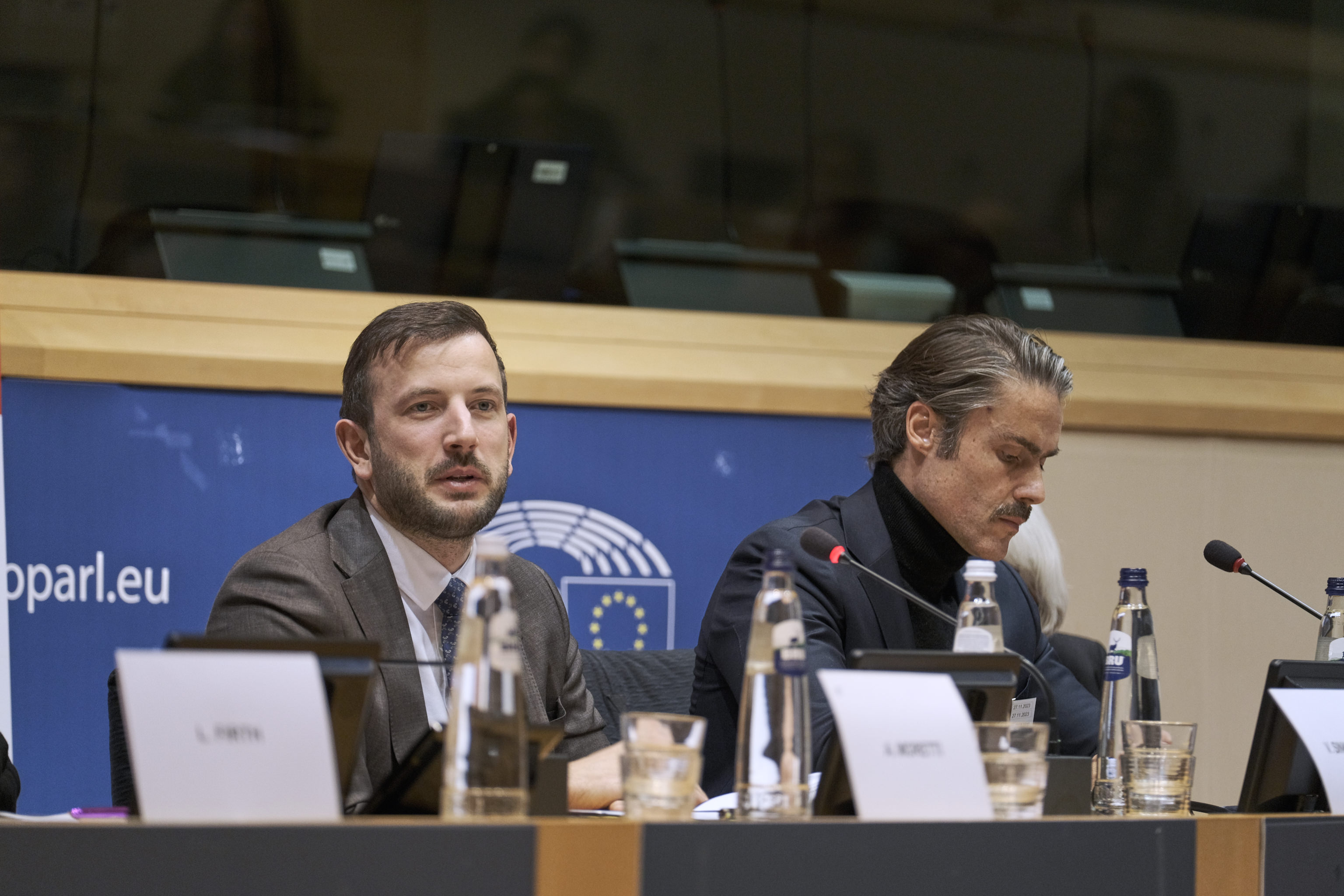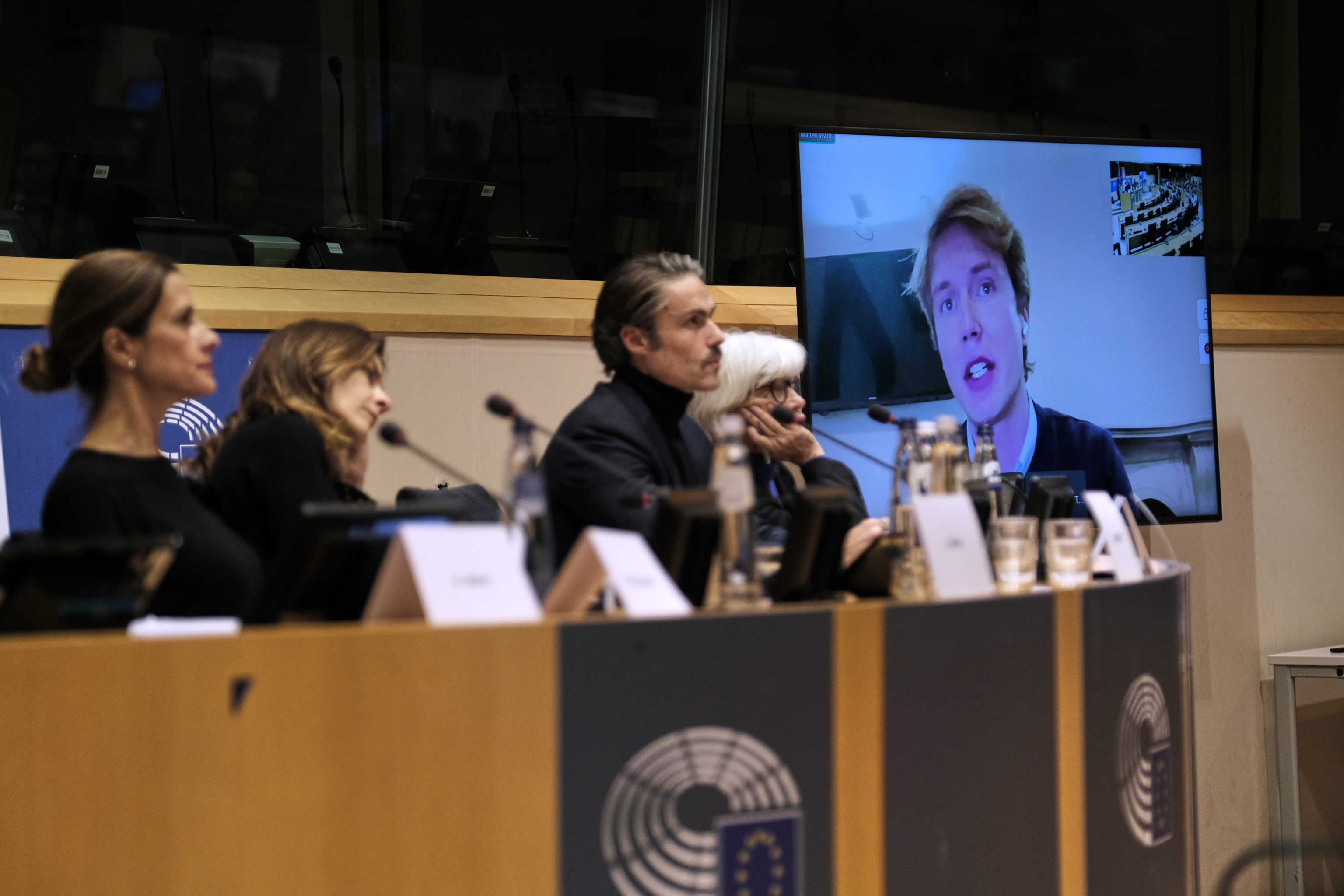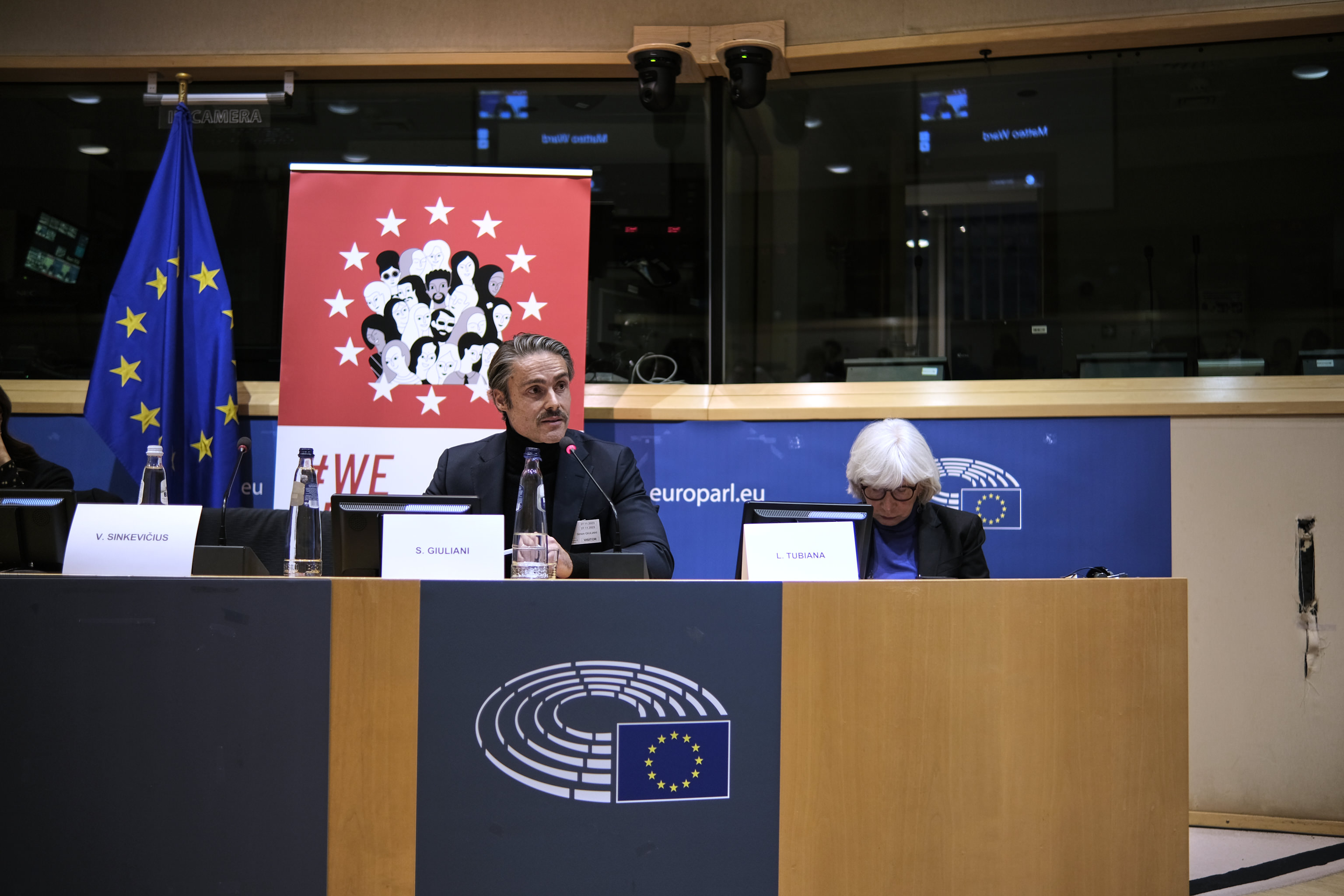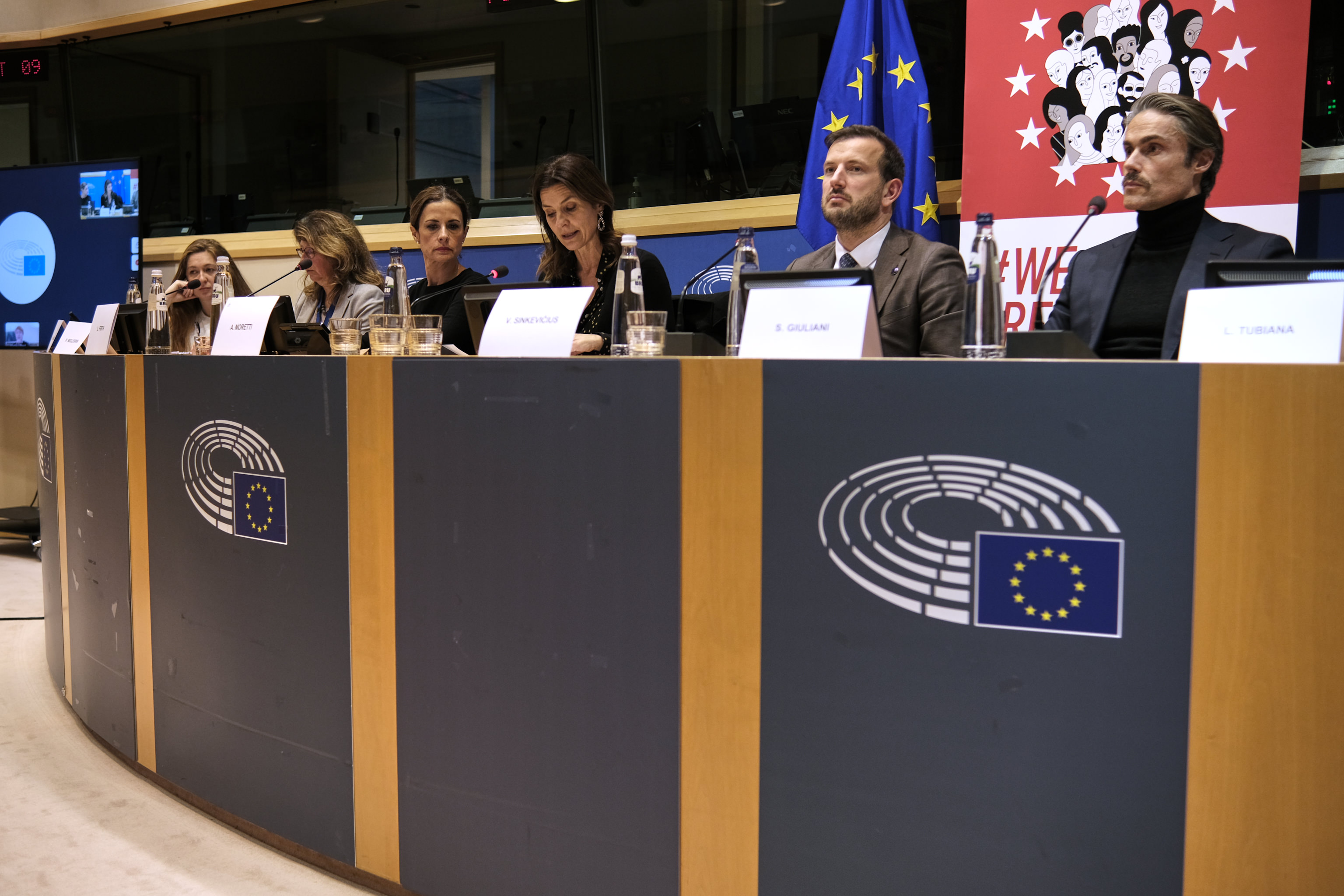Simon Giuliani, Global Marketing Director at Candiani Denim, participated in Fashionscapes of Transformation. The event assembled the European fashion powers in the European Parliament in Brussels on November 27th, just days before COP28, the 2023 United Nations Climate Change Conference.

Fashion has a key role in meeting the goals of the Paris Climate Agreement
Fashionscapes of Transformation was hosted by Alessandra Moretti, Member of the European Parliament (MEP), and featured Livia Firth, Member of the Order of the British Empire, Commissioner Virginijus Sinkevičius, Paola Migliorini from the Directorate-General for Environment, and the CEO of the European Climate Foundation, France’s Climate Change Ambassador, and Special Representative for COP21 Laurence Tubiana.
The audience included MPEs, NGO leaders, business representatives, and stakeholders within the fashion industry, who are aware that the shift towards more sustainable products is crucial in the EU’s efforts to counter fast fashion. They all agreed that the fashion industry has a pivotal role in upholding the commitment of the Paris Agreement to keep global heating below 1.5°C.
The event focused on the impact of policy measures for the fashion industry, including the Ecodesign for Sustainable Products Regulation and the Waste Framework Directive, in reducing the dependence on fossil fuels. Speakers highlighted the aim to end social exploitation and make the fashion sector operate without pushing the limits of our planet, as well as the need to prepare for a fair phase-out plan for fossil fuels, which should be the guiding principle for fashion-related policy decisions. Let’s see some highlights and comments of the participants.
The European Union is preparing the fossil fuel phase-out
Alessandra Moretti stated that she is “convinced that the fashion industry can set an example for other industries in taking decisive actions in line with global climate goals, particularly as the world gears up for COP28 and also in light of the European Parliament’s announcement of baking a fossil fuel phase-out. […] The Ecodesign for Sustainable Products Regulation, which I have the honor to be the reporter of, plays a pivotal role in this path and reshaping the fashion industry towards sustainability”.
“It’s very important to keep the textiles sector in the public eye. […] We must make fast fashion, past fashion. We very much want a competitive, resilient, and innovative textile sector, but we want to deliver that with a different model. I hope we will all be brave and responsible enough in our behavior and realize that overproduction and overconsumption impact us all”, said Virginijus Sinkevičiusz.
According to Laurence Tubiana, “we need to be vigilant that emissions don’t move elsewhere because the fossil fuel industry sees fashion as a growth sector. The fashion industry has a key role in cutting another flow of demand from this sector, as we try to do in the transport sector, on heating and cooling. This will be a key debate in Dubai [at COP28]”.
“I am so grateful to the EU for taking a leadership role in tackling the two biggest issues we face today, phasing out of fossil fuels and Just Transition, through the lens of an industry that has such a huge impact. With the biggest climate conference, COP28, just three days away, it is so important that fashion is on the frontline of change. I hope this event today will be a useful reminder of what is at stake in Dubai”, commented Livia Firth.
Matteo Ward, Co-founder of Wrad Living, provided insight into the fashion supply chain based on the TV series Junk by Sky and Will Media, which shows what happens behind the scenes of the industry in countries such as Bangladesh, Chile, Ghana, India, Indonesia, and Italy.
As Natalie Swan from the Business and Human Rights Resource Centre reminded the audience, fashion, however, revolves around people, and it is, hence, fundamental that the transition is fair and equitable in every aspect. She pointed out that workers in the supply chain are fully aware of the impact of climate change since many factories have already closed or are concerned about flooding, heat stress, or deforestation.
Finally, Yayra Agbofah, Founder of The Revival, Ghana, highlighted the profound responsibility to legislate justly and fairly. He focused on the devastating impact fast fashion has on the global south and reminded everyone that appropriate legislation is needed now because any delay would mean more plastic clothing being exported to those countries.

“The true quality of a product is directly proportional to the impact of that product on the environment at the end of its life”
Simon Giuliani presented our vision for a fully circular and regenerative system. “The true quality of a product is directly proportional to the impact of that product on the environment at the end of its life. That’s why it’s fundamental to have legislation that incentivizes brands to adopt solutions that create high quality and can reduce impact. Less is more when less is better”, said Simon.
Simon highlighted that overproduction is an alarming issue for the entire fashion industry, including the jeans sector. 80% of jeans are stretch, meaning they are conventionally made with a synthetic, fossil fuel-based elastomer that needs up to 300 years to degrade and leaves microplastics in the environment.
COREVA™ is a tangible solution for circular fashion
Simon Giuliani brought our COREVA™ technology to the European Parliament as an example of a tangible solution for circular fashion in the denim industry. We developed and patented COREVA™ starting from the problem of petrol-based materials. The technology uses a 100% bio-based elastomer to produce the world’s first biodegradable and compostable stretch denim, and, at the end of their life, its products can return to nature to grow new raw materials.
When a jean is recycled, only a part can be reused to make new yarns. We want this inevitable waste to be compatible with agriculture, so we tested if COREVA™ is compostable following the EN 13432:2002 standards.
Simon concluded with a plea to governments and institutions, remembering that, despite the potential of the European manufacturing industry, brands continue to favor suppliers from low-cost countries. Hence, it is necessary to have legislation and measures to incentivize brands to invest in innovative environmental-friendly solutions and guide brands towards their sustainable transition so they can quickly adopt innovations that help reach the common goals for climate and environment.

The 2024 European Parliament election will focus on sustainability, too
Some pivotal elements of the Textiles Strategy, such as the Ecodesign for Sustainable Products Regulation, are due before 2023 ends, while other policies will continue to be deliberated next year. 2024 will also be a significant election year in the European Union. Fashionscapes of Transformation was, hence, an occasion to underline that sustainability in the textile industry should play a crucial role in electing new policymakers.
 Log into your account
Log into your account
 Register
Register

